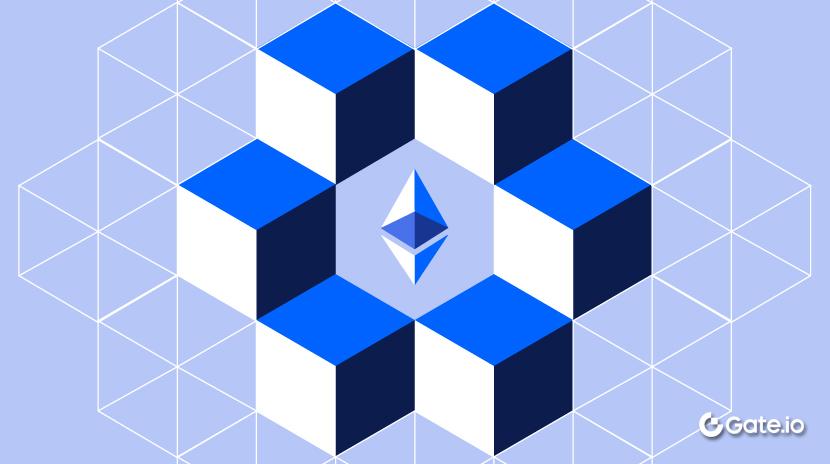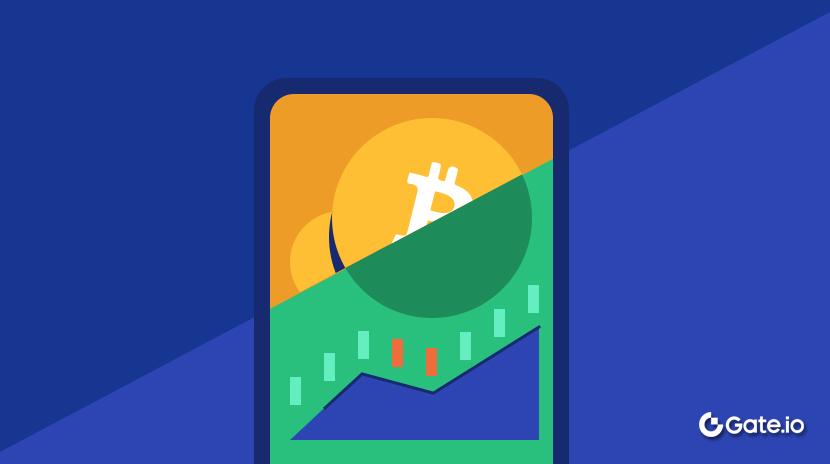بوابة البحث: صندوق النقد الدولي يضم بيتكوين في أصول الحساب الرأسمالي؛ تجاوزت قيمة الأصول الإجمالية لبروتوكول RWA 10 مليار دولار
مجرد
- ارتفع سعر بيتكوين بنسبة 1.97٪ إلى 86,806 دولار ، بينما ارتفع سعر الإيثيريوم بنسبة 1.68٪ إلى 2,036 دولار.
- كان حجم حرق إيثريوم اليومي 53.07 ETH فقط، مما يشكل أدنى مستوى تاريخي.
- حل PancakeSwap في المرتبة الأولى في حجم التداول الأسبوعي للـ DEX، مع زيادة أسبوعية تزيد عن 40%.
- شهدت بروتوكولات RWA (Real-World Asset) تجاوز قيمة القفل الكلي (TVL) 10 مليار دولار.
- صنفت صندوق النقد الدولي (صندوق النقد الدولي) تصنيفات الأصول الرقمية رسميًا، ووضعت بيتكوين تحت حساب رأس المال.
- تم إطلاق رمز Plume على شبكة Solana، مما يعزز السيولة عبر السلاسل الرقمية لأصول RWA.
تحليل السوق
- BTCخلال الساعات الأخيرة ٢٤، ارتفع سعر بيتكوين بنسبة ١.٩٧٪، ويتداول حاليًا عند ٨٦٬٨٠٦ دولار. بيتكوين في اتجاه صاعد، حيث تم اختراق مستوى المقاومة عند ٨٦٬٥٠٠ دولار مؤخرًا. المتوسطات المتحركة في توجيه صاعد والسعر فوقها، مما يشير إلى زخم إيجابي مستدام على المدى القصير. إذا استمر هذا الزخم، فقد يتحدى السعر الأعلى السابق عند ٨٧٬٤٠٠ دولار.

- ETH خلال الساعات الأخيرة، ارتفع سعر الإيثيريوم بنسبة 1.68٪، حيث وصل إلى 2،036 دولارًا. يظل الإيثيريوم في اتجاه صاعد، حيث لامس مؤخرًا خط التريند الصاعد بالقرب من 1،980 دولارًا. السعر الآن يواجه المقاومة، مصحوبًا بزيادة حجم التداول. إذا تمكن من كسر المقاومة والاحتفاظ بها، فمن المحتمل أن يحدث ارتفاع إضافي.

- صندوق تداول بالبورصة - وفقًا للبيانات من SoSoValue، في 21 مارس، شهدت صناديق ETF الأمريكية للبيتكوين تدفق صافٍ بقيمة 83.09 مليون دولار، بينما شهدت صناديق ETF للإيثيريوم تدفقًا صافيًا بقيمة 18.63 مليون دولار. البيانات حتى 24 مارس، الساعة 11:00 صباحًا (UTC+8). [3][4]
- العملات البديلة —— سجلت قطاعات مثل بيئة Pump.fun، PolitiFi، و Solana Meme تغييرات متناسبة بنسبة +8.1%، +7.1%، و +6.8%. [5]
- سوق الأسهم الأمريكي- في 21 مارس، ارتفع مؤشر S&P 500 بنسبة 0.08٪، وزاد مؤشر داو جونز بنسبة 0.08٪، بينما ارتفعت ناسداك بنسبة 0.52٪. [6]
- Spot Gold—— وصل سعر الذهب الخام إلى 3,020.19 دولار للأوقية، مسجلاً انخفاضًا يوميًا بنسبة 0.11٪. البيانات حتى 24 مارس، الساعة 11:00 صباحًا (توقيت جرينتش +8). [7]
- مؤشر الخوف والطمع—— يبلغ المؤشر 45، مما يشير إلى أن السوق تتواجد حاليًا في حالة خوف. [8]
الأداء الأعلى
وفقًا لبيانات سوق Gate.io[9]، استنادًا إلى حجم التداول وأداء الأسعار خلال الـ 24 ساعة الماضية، فإن العملات البديلة ذات الأداء الأفضل هي كما يلي:

FARTCOIN (Fartcoin)- زيادة يومية بنسبة تقريبية 24.86٪ ، القيمة السوقية الدائرية 558 مليون دولار.
فارتكوين هو عملة ميمية مبنية على سلسلة الكتل سولانا، تتميز بهوية علامة تجارية مدفوعة بالفكاهة وتقلبات سوقية ملحوظة. كعملة مبنية بشكل كامل على الميمات، فإن فارتكوين تفتقر إلى الابتكار التكنولوجي الكبير أو الفائدة، معتمدة بالكامل على جاذبيتها الترفيهية لجذب الانتباه. على الرغم من ذلك، تمكنت من تنمية مجتمع نشط، حيث يشارك المشاركون أساسا لأغراض الترفيه أو التكهن.
مؤخرًا، شهد قطاع العملات الميمية على منصة سولانا عودة قوية. لقد أدى التحسن العام في المشهد السوقي إلى إعادة زيارة المستثمرين للرموز الميمية. كمشروع بارز سابقًا ضمن هذا القطاع، استفاد فارتكوين من البيئة السوقية الأوسع، مما أدى إلى ارتفاع سعره.
ZEUS (شبكة زيوس)- زيادة يومية بنسبة تقريبية 24.39%، القيمة السوقية الدائرة لـ $147 مليون
شبكة زيوس هي طبقة توافق متعددة السلاسل مبنية على سلسلة كتل سولانا، مصممة لتمكين التفاعل غير المرخص بين بيتكوين وبيئات سلاسل كتل أخرى. تم وضع شبكة زيوس كحل درجة الطبقة 1.5 لسولانا، حيث تنشئ جسرًا عبر السلاسل المتقاطعة بدون جسر، مما يخلق منصة للمطورين لتصميم ودمج التطبيقات اللامركزية (dApps).
أول تطبيق لشبكة زيوس، أبولو، مُقرّر أن يُطلق قريبًا. سيسمح أبولو للمستخدمين بإيداع البيتكوين وإطلاق عملات zBTC بنسبة 1:1. من المتوقع أن يُدخل هذا الإجراء سيولة البيتكوين في نظام السولانا، مما يُثري بشكل كبير نشاطه الاقتصادي. إطلاق أبولو القادم يُؤكد بشكل إضافي الإمكانية النموذجية لشبكة زيوس، مما يعزز ثقة المستثمرين ويرفع سعر الرمز التشفيري.
مبارك (مبارك)- زيادة يومية بنسبة تقريبية 20.12٪، قيمة سوق العملات المتداولة 146 مليون دولار.
مبارك هو رمز ميمي تم إصداره على Binance Smart Chain (BSC)، حيث يعني اسمه "مبارك" باللغة العربية. تم إطلاق الرمز في 14 مارس 2025، عبر منصة Four.Meme. إنه يستلهم من استثمار أبوظبي في بورصة مركزية (CEX)، مهدفاً إلى رمزية النمو والفرصة كأصل رقمي.
أسهم ارتفاع سعر MUBARAK الأخير إلى حد كبير من دعم CZ. في 13 مارس، قام CZ بإعادة نشر ميم متعلق ب MUBARAK على وسائل التواصل الاجتماعي، مصحوبًا بالتعليق "مبارك"، مما أثار انتباه السوق. ولتجنب الارتباك في العقود مماثل لحادثة البروكلي السابقة، عين CZ بعد ذلك عنوان عقد رسمي، مما زاد من حماس السوق. اليوم، استخدم CZ عنوان تبرع عام لفتح موقف طويل برافعة مالية بنسبة 24.7 مرة على MUBARAK بـ 0.04 BNB على APX Finance، مما أدى إلى زيادة في السعر (تم إغلاق الموقف منذ ذلك الحين).
إبرازات البيانات
تراجع حرق الإيثيريوم اليومي إلى أدنى مستوى تاريخي فقط 53.07 ETH
وفقًا للبيانات من The Block، في 22 مارس، بلغت كمية الإيثيريوم التي تم حرقها من خلال رسوم التحويل فقط 53.07 ETH - بقيمة تقدر بحوالي 106،000 دولار بأسعار السوق الحالية - مما يشكل أدنى مستوى تاريخيًا. وهذا يعكس انخفاضًا كبيرًا في الطلب على استخدام الشبكة. لقد تراجع إنشاء العناوين الجديدة وعدد التحويلات وحجم التحويلات اليومية على شبكة الإيثيريوم لعدة أسابيع متتالية، مما يشير إلى انخفاض في نشاط المستخدمين وحمل الشبكة بشكل عام.
يشير هذا إلى أن سوق المعاملات في إيثريوم حاليًا في حالة تراجع، مع انتقال المستخدمين والمطورين بشكل محتمل نحو سلاسل عامة أقل تكلفة أو بديلة. باعتبارها النظام الأساسي الرائد لـ DeFi و NFTs، لا يُضعف النشاط الشبكي لإيثريوم فقط من نظرتها التضاؤلية، ولكنه يضع أيضًا ضغطًا على مقترح قيمتها على المدى الطويل وحيوية النظام البيئي الخاص بها.

تتصدر PancakeSwap حجم تداول DEX الأسبوعي بنسبة نمو تزيد عن 40%
ارتفع حجم التداول الأسبوعي لـ PancakeSwap من ما يقرب من 9.94 مليار دولار الأسبوع الماضي إلى 14.1 مليار دولار هذا الأسبوع، وهو زيادة بنسبة 41.93%، مما يجعله أعلى بورصة لامركزية (DEX) من حيث الحجم الأسبوعي. ويتناقض هذا بشكل حاد مع 8 مليار دولار لـ Uniswap (انخفاض بنسبة 43.83% عن الأسبوع الماضي) و 2.5 مليار دولار لـ Raydium (انخفاض بنسبة 17.32%)، مما يسلط الضوء على الأداء القوي لـ PancakeSwap في السوق مؤخرًا.
قد يكون ارتفاع حجم PancakeSwap ناتجًا عن شعبية عملات الدمى مثل Four.meme. بالإضافة إلى ذلك، فقد جذب إطلاق العقود الآجلة للرموز الرائجة مثل MUBARAK و BANANAS31 الذين يبحثون عن عوائد عالية. قد تساهم أيضًا إطلاق أداة إنشاء الرموز بدون كود SpringBoard وروبوت التداول الجديد على تليجرام، وتوسيعها إلى Polygon zkEVM في زيادة قاعدة مستخدمين متزايدة.
بروتوكولات RWA تتجاوز 10 مليارات دولار في قيمة الأقراض المقترضة
وصل تجزئة الأصول الحقيقية (RWA) إلى مرحلة هامة، حيث بلغ إجمالي قيمة القروض المقترضة في بروتوكولات RWA 10 مليارات دولار، حيث يبلغ حاليا 10.4 مليار دولار. يشكل هذا التطور تقاربا متسارعا لتكنولوجيا البلوكشين مع الأنظمة المالية التقليدية - وخاصة مع هبوط العوائد في تمويل البلوكشين المركزي (DeFi)، مما يدفع المستثمرين نحو القروض الحقيقية في البحث عن عوائد أكثر استقرارا.
هناك العديد من العوامل الرئيسية التي تغذي النمو وراء بروتوكولات RWA التي تتجاوز عتبة TVL البالغة 10 مليارات دولار. مع انخفاض عوائد التمويل اللامركزي ، تحول المستثمرون إلى RWAs - خاصة أدوات الدين في العالم الحقيقي مثل السندات الحكومية وقروض الشركات - للحصول على تدفقات دخل أكثر موثوقية. على سبيل المثال ، تقدم MakerDAO خيارات عائد منخفضة المخاطر من خلال ضمانات RWA. تعمل RWAs كجسر بين التمويل التقليدي والأنظمة اللامركزية من خلال جلب الأصول مثل أذون الخزانة والسندات الحكومية والعقارات والسلع إلى blockchain. هذا التكامل يجذب المستثمرين المؤسسيين. يعزز الترميز السيولة وقابلية تقسيم الأصول التقليدية ، بينما تعمل تقنية blockchain على تحسين شفافية الملكية وتقليل التكاليف الإدارية. كما جذبت مشاريع الترميز العقاري مثل YieldStreet اهتماما كبيرا من مستثمري التجزئة. وأخيرا، وسط حالة عدم اليقين الاقتصادي الأوسع نطاقا، يتزايد الطلب على وكالات الاستقبال، حيث يبحث المستثمرون عن قنوات استثمار أكثر أمانا، مما يزيد من تسريع تطور القطاع.

تحليل الضوء
صندوق النقد الدولي يعرف بوضوح تصنيفات الأصول الرقمية، ويضع بيتكوين تحت الحساب الرأسمالي
اقترح صندوق النقد الدولي (IMF) ، في الإصدار الأخير من دليل ميزان المدفوعات ووضع الاستثمار الدولي (BPM7) ، لأول مرة مبادئ تصنيف الأصول الرقمية. يصنف Bitcoin والعملات المستقرة و Ethereum و Solana وغيرها بناء على ما إذا كانت تشكل التزامات وقابليتها للاستبدال ، ودمجها في الإطار الإحصائي الرسمي. على وجه التحديد ، يتم تصنيف الرموز المميزة مثل Bitcoin غير المدعومة بالالتزامات على أنها أصول غير مالية غير منتجة ويتم تضمينها في حساب رأس المال. يمكن اعتبار العملات المستقرة ، بسبب التزامات الاسترداد الخاصة بها ، أدوات مالية. وباعتباره ركيزة أساسية للنظام الاقتصادي العالمي، فإن صندوق النقد الدولي مسؤول عن الإشراف على استقرار النظام النقدي الدولي، وتعزيز التجارة العالمية، وتقديم المشورة بشأن السياسات الاقتصادية. دليل BPM الخاص به هو المبدأ التوجيهي الرسمي للبلدان في تجميع إحصاءات ميزان المدفوعات ، مع تأثير واسع النطاق على البنوك المركزية والوكالات الإحصائية وعمليات الأسواق المالية.
سيعزز تحديث BPM7 مراقبة المعاملات الدولية التي تنطوي على الأصول الرقمية ، ويعزز تحليل الاستقرار المالي العالمي ، ويحسن توصيات السياسات. ستحتاج الوكالات الإحصائية الوطنية إلى تعديل أساليب جمع البيانات الخاصة بها - على سبيل المثال ، بما في ذلك Bitcoin تحت حساب رأس المال أو معاملة خدمات التعدين كصادرات. هذا يمكن أن يوجه المزيد من الموارد إلى صناعة blockchain ويدعم تدريب المواهب ذات الصلة. بالنسبة لصناعة الأصول الرقمية ، تعزز هذه الخطوة الشرعية وتجذب الاستثمار. ومع ذلك، فإن تصنيف صندوق النقد الدولي - مثل البيتكوين كأصل من أصول حساب رأس المال، والعملات المستقرة كأدوات مالية، وETH و SOL كأدوات شبيهة بالأسهم، وخدمات التعدين كصادرات - قد يؤثر على اللوائح والضرائب والاستثمار عبر الحدود، ويمكن أن يدفع البلدان أيضا إلى مواصلة تطوير الصناعات ذات الصلة. [16]
إطلاق رمز Plume على Solana، مع تقدم سيولة RWA عبر السلاسل
في 24 مارس 2025، أعلنت شركة Plume عن إطلاق رمزها الأصلي، $PLUME، على شبكة Solana، مما يفتح الوصول إلى التداول ويمثل خطوة هامة في استراتيجيتها عبر السلاسل. من خلال مبادرتها SkyLink، تقوم Plume ببناء نظام بيئي RWAfi الذي يمكن الأصول العالمية الحقيقية (RWAs) مثل العقارات والسندات من التداول بحرية عبر عدة سلاسل.
هذا الإطلاق ليس حدث إنشاء رمز (TGE)، بل هو توسيع إلى سولانا عبر جسر عبر السلسلة، بهدف تعزيز السيولة ومشاركة المستخدم. باعتباره رمز حوكمة وفائدة نظام البلوم، $PLUME يدعم التصويت، الرهان، ووظائف الشبكة. يعرف سولانا بأدائه العالي ومجتمعه النشط؛ اختيار بلوم لهذه السلسلة يستند ليس فقط على مزاياه التقنية ولكن أيضًا على تأثيره في النظام البيئي. يستخدم SkyLink تقنية YieldTokens المعكوسة لضمان أمان TVL على السلسلة الأصلية ودعم توزيع العائد، مما يساعد على التخفيف من مخاطر السيولة عبر السلاسل. من خلال تداول $PLUME على سولانا، يمكن للمستخدمين المشاركة بشكل أسهل في نظام بلوم لأصول العالم الحقيقي، مما يعزز اعتماد الأصول الحقيقية داخل السوق الاحتياطية.[17]
أعلنت استثمارات فيدليتي عن خطة لإطلاق نسخة على سلسلة الكتل من صندوق الدولار الأمريكي الخاص بها
أعلنت شركة Fidelity Investments مؤخرا عن خطتها لإطلاق نسخة قائمة على blockchain من صندوق سوق المال بالدولار الأمريكي ، مما يمثل دخول العملاق المالي - الذي يدير أكثر من 5.8 تريليون دولار من الأصول - إلى مساحة ترميز أصول العالم الحقيقي (RWA). سيتم نشر المنتج الجديد ، المسمى أسهم Fidelity Treasury Digital Fund (FYHXX) "OnChain" ، في البداية على Ethereum blockchain ، مع التوسع المحتمل إلى منصات أخرى على السلسلة في المستقبل. سيستخدم الصندوق blockchain كوكيل تحويل ويستثمر في النقد وسندات الخزانة الأمريكية. في انتظار الموافقة التنظيمية ، من المتوقع أن يصبح الصندوق ساري المفعول في 30 مايو 2025. لا تعكس هذه الخطوة اعتراف Fidelity القوي بكفاءة وشفافية تقنية blockchain فحسب ، بل تشير أيضا إلى تحول منهجي للتمويل التقليدي نحو "التمويل على السلسلة".
بالنسبة لشركة Fidelity نفسها ، فإن إطلاق نسخة blockchain من صندوق سوق المال الخاص بها يعمل على تعزيز سمعتها كشركة رائدة في الابتكار في الصناعة المالية من خلال الاستفادة من تقنية blockchain. يهدف إلى جذب العملاء المهتمين بالأصول الرقمية مع تبسيط العمليات وخفض التكاليف وزيادة الشفافية. يفتح دخول سوق ترميز RWA أيضا تدفقات إيرادات جديدة لشركة Fidelity ، خاصة على خلفية نمو السوق. بالنسبة للمنافسين مثل BlackRock و Franklin Templeton ، فإن دخول Fidelity يكثف المنافسة ، مما قد يؤدي إلى الابتكار في السوق وتخفيض الرسوم. قد يحفز أيضا التعاون مع المؤسسات المالية أو مزودي التكنولوجيا ، مما يسرع من اعتماد ترميز RWA وتوسيع حجم السوق. بالنسبة للصناعة ككل ، يمكن لمبادرة Fidelity أن تعزز بشكل كبير التبني السائد لتقنية blockchain في التمويل التقليدي. قد يعزز توحيد السوق ، والوضوح التنظيمي ، ويعمل كمحفز للابتكار ، مما يؤدي إلى ظهور منتجات جديدة تجمع بين نقاط القوة في blockchain والتمويل. [18]
أخبار التمويل
وفقًا لـ RootData، خلال الساعات الأخيرة، أعلن مشروعان بنجاح عن جولات جمع تمويل علنية، حيث بلغ إجمالي مبلغ التمويل أكثر من 67 مليار دولار. بلغت قيمة أكبر جولة تمويل فردية 5 ملايين دولار، تغطي مجالات مثل البنية التحتية والذكاء الاصطناعي. تفاصيل مشروعات جمع التمويل كالتالي: [19]
بيتركس—— أكملت BetterX جولة تمويل سلسلة Pre-A بقيمة 1.7 مليون دولار، بمشاركة من Grand Prix Capital و Aument Capital، وغيرهم. تعد BetterX موفرة لبنية الأصول الرقمية متخصصة في تقديم حلول الأصول الرقمية عالية المستوى للمؤسسات المالية. تلتزم الشركة ببناء جسر بين التمويل التقليدي ونظام الأصول الرقمية، وتقدم حلولًا متوافقة وقابلة للتوسيع لشركات إدارة الثروات والوسطاء المرخصين. تخطط BetterX لاستخدام الأموال التي تم جمعها حديثًا لتسريع استراتيجيتها النمو في الأسواق الرئيسية مثل آسيا والشرق الأوسط والولايات المتحدة، وإقامة شراكات استراتيجية، وتعزيز تراكمها التكنولوجي لتلبية مطالب التنظيم المتزايدة واحتياجات العملاء.
هيبيتأكملت هيبيت جولة تمويل بقيمة 5 ملايين دولار، بمشاركة من ووتردريب كابيتال، وبيترفيرس داو، وغيرهم. هيبيت هي بنية تحتية مستقلة وسلسة مصممة لربط شبكات البلوكشين المتعددة بما في ذلك TON، كاسبا، سولانا، إيثيريوم، بيتكوين، بينانس كوين، وآي سي بي. يقدم حلاً آمنًا للتبادل بين الشبكات دون جسور. سيتم استخدام الأموال المجمعة للتقدم في تطوير مجالات مثل هيبيت ديكس، التشغيل المشترك بين الشبكات، واقتصاد الوكيل الذكي.
فرصة الإنزال الجوي
شبكة Orochi
شبكة Orochi هي بنية بيانات قابلة للتحقق مبتكرة مصممة لتحديث معالجة البيانات في العصر الرقمي من خلال ضمان سلامة البيانات والخصوصية من خلال تقنيات التشفير المتقدمة. إنها تستفيد من أدوات حديثة مثل الأدلة الصفرية المعرفية (ZKP)، والتشفير الكامل للحوسبة (FHE)، والبيئات الموثوقة للتنفيذ (TEE) لتحقيق هذا الهدف.
أطلقت شبكة Orochi مؤخرًا حملة ONACTIVE، حيث يمكن للمشاركين كسب رموز $ON، والحصول على أدوار مجتمعية خاصة، وفتح مكافآت حصرية.
كيفية المشاركة:
- زر صفحة الويب الرسمية لشبكة Orochi ONACTIVE وقم بالتسجيل.
- انضم إلى مجموعة الدردشة الرسمية، احصل على كود جديد، وقم بالتحقق منه ONACTIVE.
- أكمل المهام الإضافية لكسب النقاط.
ملحوظة:
يخضع خطة الإسقاط الجوي وطرق المشاركة للتغيير في أي وقت. يُنصح المستخدمون بمتابعة القنوات الرسمية لشبكة Orochi للحصول على أحدث التحديثات. بالإضافة إلى ذلك، يجب على المستخدمين المشاركة بحذر، وأن يكونوا على علم بالمخاطر، وأن يُجروا أبحاثاً دقيقة قبل المشاركة. لا يضمن Gate.io توزيع مكافآت الإسقاط الجوي المستقبلية.
المراجع:
- Gate.io,https://www.gate.io/trade/BTC_USDT
- بوابة.ايوhttps://www.gate.io/trade/ETH_USDT
- SoSoValue،https://sosovalue.xyz/assets/etf/us-btc-spot
- SoSoValue،https://sosovalue.xyz/assets/etf/us-eth-spot
- CoinGecko،https://www.coingecko.com/ar/categories
- استثمار،https://investing.com/indices/usa-indices
- استثمار،https://investing.com/currencies/xau-usd
- بوابة.ايوhttps://www.gate.io/bigdata
- Gate.io,https://www.gate.io/price
- جيت.ايو،https://www.gate.io/price/fartcoin—fartcoin?fiat=usd
- Gate.io،https://www.gate.io/price/zeus-network-zeus?fiat=usd
- Gate.io،https://www.gate.io/price/mubarak-mubarak
- Theblock،https://www.theblock.co/data/on-chain-metrics/ethereum/burned-eth-after-eip-1559-daily
- Defillama،https://defillama.com/dexs
- Defillama,https://defillama.com/protocols/RWA
- صندوق النقد الدولي،https://www.imf.org/-/media/Files/Data/Statistics/BPM6/draft-bpm7-wcv.ashx
- Theblock,https://www.theblock.co/post/347646/daily-eth-burn-hits-all-time-low-as-ethereums-on-chain-activity-dips
- SEC،https://www.sec.gov/Archives/edgar/data/917286/000113322825002995/ftdf-efp15119_485apos.htm#useofRootdata
- Crowdfundinsider,https://www.crowdfundinsider.com/2025/03/237651-singapore-digital-asset-startup-betterx-secures-1-7m-to-accelerate-global-expansion/
- X,https://x.com/hibit_official/status/1903370344645468470?s=46
- أوروتشي،https://orochi.network/
بحوث Gate
بوابة البحوث هي منصة بحث شاملة في مجال البلوكشين والعملات المشفرة، تقدم للقراء محتوى عميقًا، بما في ذلك التحليل الفني، والتحليلات الساخنة، واستعراض السوق، والبحوث الصناعية، وتوقعات الاتجاهات، وتحليلات السياسات الاقتصادية الكبرى.
انقر علىرابطلمعرفة المزيد
إخلاء المسؤولية
الاستثمار في سوق العملات المشفرة ينطوي على مخاطر كبيرة، ويُوصَى للمستخدمين بإجراء أبحاث مستقلة وفهم طبيعة الأصول والمنتجات التي يقومون بشرائها تماما قبل اتخاذ أي قرار استثماري.بوابة.ايولا تتحمل مسؤولية أي خسائر أو أضرار ناجمة عن تلك القرارات الاستثمارية.
المقالات ذات الصلة

أفضل 7 بوتات مدعومة بالذكاء الاصطناعي على تليجرام في عام 2025

كيف تعمل بحوثك الخاصة (Dyor)؟

أفضل 10 منصات تداول العملات الميمية

كيفية تخزين ETH?

ما المقصود بالتحليل الأساسي؟
